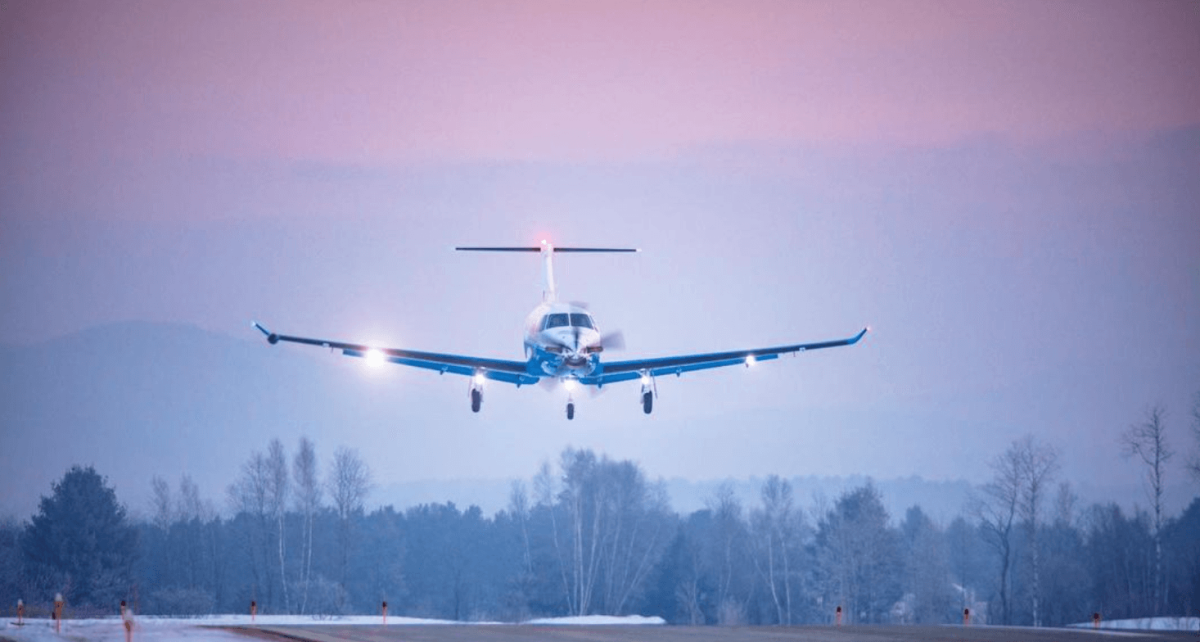PlaneSense fractional owners will no longer need to pay ferry fees to fly in the Western U.S. on its Pilatus PC-12 program.

While PlaneSense fractional shareowners have always been able to fly to and from the Western U.S., they will no longer pay ferry fees for the Pilatus PC-12.
The move means that New Hampshire-based PlaneSense is now truly a national program. Previously, the primary service area stopped at the New Mexico, Colorado, Nebraska, Dakotas’ western borders. It went into effect on Oct. 1.
The fractional operator is adding a maintenance facility at Boulder City Airport (BVU) north of Las Vegas to support the move.
By the end of the year, PlaneSense will have 38 PC-12s, with six more scheduled to join the fleet in 2022.
During the same period, its PC-24 fleet will increase to 10 from seven jets.
Like all providers, PlaneSense has been under stress as private jet flying has surged to record levels.
Founder and CEO George A. Antoniadis tells Private Jet Card Comparisons that the company has taken various actions to keep operations running as smoothly as possible.
In June, it stopped its Part 135 charter operations, which were sold under the Cobalt brand. Antioniadis said PlaneSense is now going off-fleet for 3-to-6% of flights, compared to the usual 1-to-3%.
“It would be wrong the make our fleet available to non-owners during this period of record demand,” he says. Cobalt was a multi-million-dollar revenue stream.
PlaneSense doesn’t officially sell jet cards but had a limited inventory offered to fractional share prospects who weren’t ready to sign on for the multi-year purchase. That has been scaled back, he says.
Last year, PlaneSense added 52 new pilots. Since June has been adding a dozen per month, something that will continue for the foreseeable future.
The company has long tried to have as much of its operations in-house, which includes maintenance and pilot training.
That’s helped PlaneSense weather the storm. However, when it needs supplemental maintenance, like other operators, he says delays mean planes stay grounded longer.
Later this month, PlaneSense will take delivery of its 75th Pilatus aircraft since it was founded in 1995.
As an indication of how supply chain issues are impacting private aviation, he points to components of the Swiss-made airplanes that are manufactured in the U.S. He says in some cases they now take 12 days to get to the OEM instead of 48 hours.
He says the reduction in international flights and the grounding of larger airplanes by the airplanes has meant a reduction in cargo capacity.
Antoniadis says he has been trying to deal with the operational challenges by being upfront with owners. PlaneSense may also be fortune that for many customers, the capabilities of the PC-12 outweigh current industry issues.
He notes PlaneSense serves one customer who has a grass runway on his property. The single-engine turboprops only need about 2,000 feet of runway. The company considers adding airports based on meeting its safety requirements and inspections.